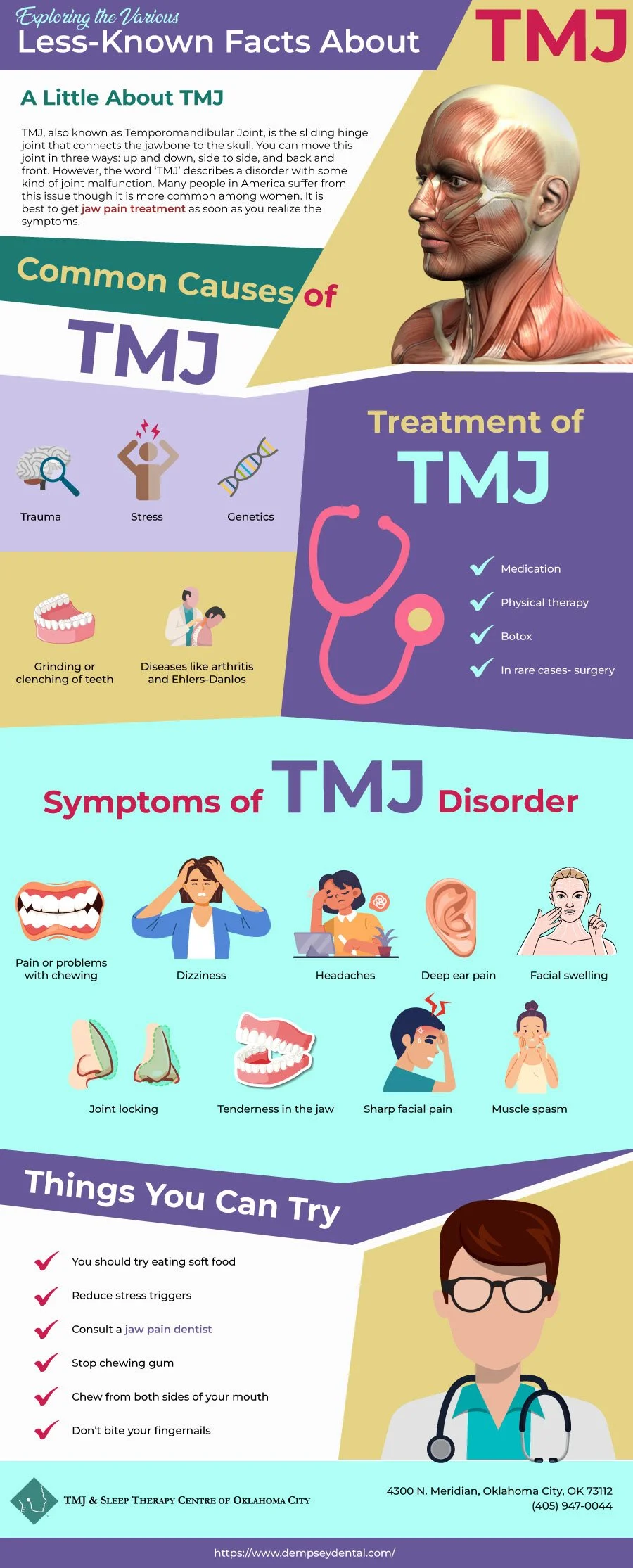Exploring The Various Less- Known Facts About TMJ
TMJ is the joint that connects our jawbone to the skull and helps us move our joint in three ways: side by side, front and back, and up and down. The malfunction of this joint becomes a matter of concern for many women. Some symptoms include dizziness, ear pain, sharp facial pain, joint locking, difficulty chewing, headache, aching pain in your ear and muscle spasm. Some ways to treat TMJ are medication, Botox, physical therapy, and surgery. It has happened for many reasons like trauma, grinding, genetics, stress, and diseases like arthritis and Ehlers-Danlos. You should consult a joint pain dentist and try to eat soft foods during this time. You should also eat from both sides of your mouth and stop biting your fingernails.
**Disclaimer: The information on this page is not intended to be a doctor's advice, nor does it create any form of the patient-doctor relationship.

